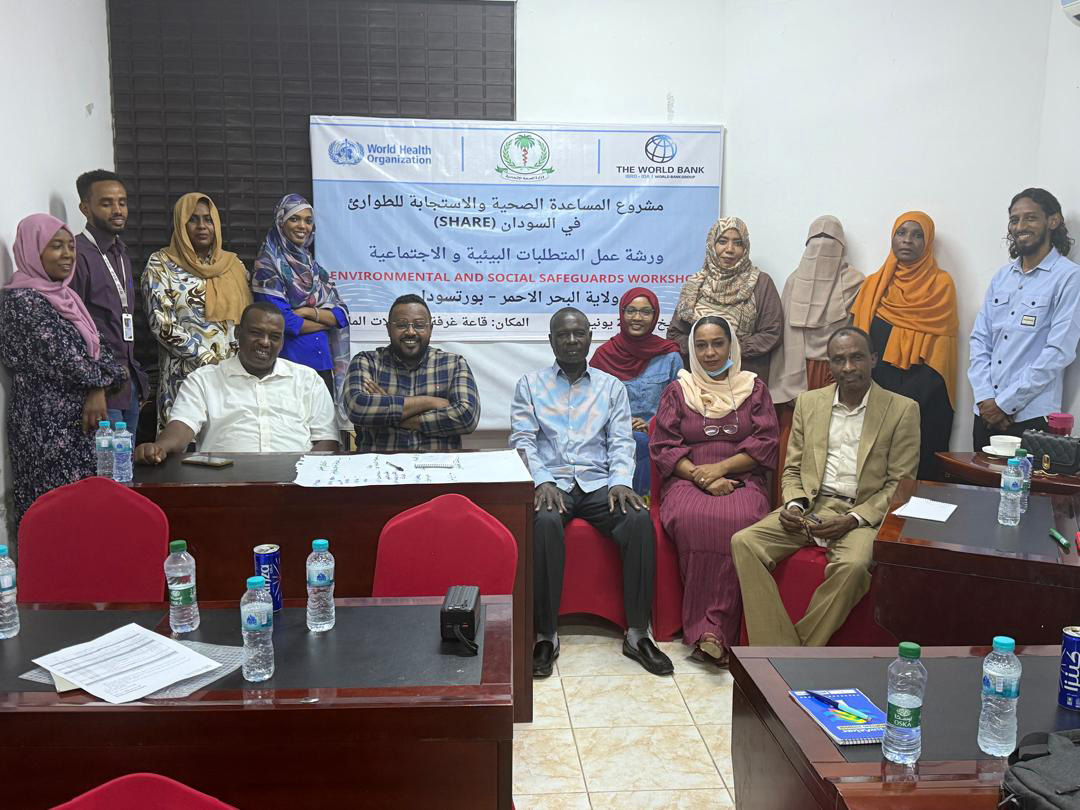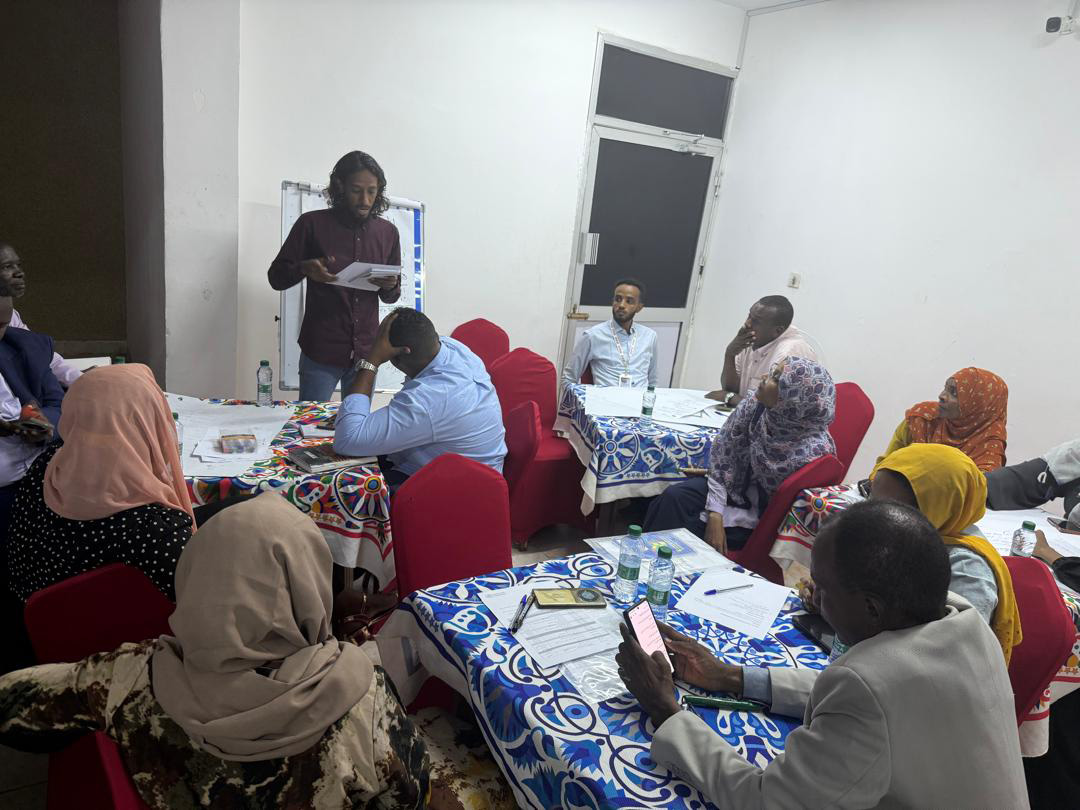
17 July 2025, Port Sudan, Sudan – The World Health Organization (WHO) is steadfast in its commitment to upholding environmental and social safeguards (ESS) and implementing the Environmental and Social Commitment Plan across all stages of the World Bank-supported Sudan Health Assistance and Response to Emergencies (SHARE) project.
Between 22 and 24 June, WHO conducted a training workshop in Port Sudan to strengthen the capacity of implementing partners to identify, mitigate and manage potential environmental and social risks. The training brought together partner ESS focal points and staff from participating hospitals. Sessions focused on the objectives and scope of relevant ESS instruments, risk identification and mitigation measures, stakeholder roles and responsibilities, incident and accident reporting mechanisms and implementation timelines.

Participants engaged in a range of interactive activities, including presentations, group exercises and discussions followed by questions and answers. A dedicated session on community feedback mechanisms (CFM), delivered by the Inter-Agency CFM focal point, underlined the project’s commitment to accountability, transparency and community engagement.
“WHO is keen to build implementation capacities among partners in Sudan to ensure environmental and social safeguards are in place alongside the delivery of critically needed health emergency response,” said WHO’s SHARE project Senior Programme Manager Dr Naseeb Qirbi.
The workshop reflects WHO’s ongoing efforts to integrate environmental and social sustainability principles as a cross-cutting component of health service delivery as it works to ensure that lifesaving health and nutrition interventions reach those most in need in Sudan.





